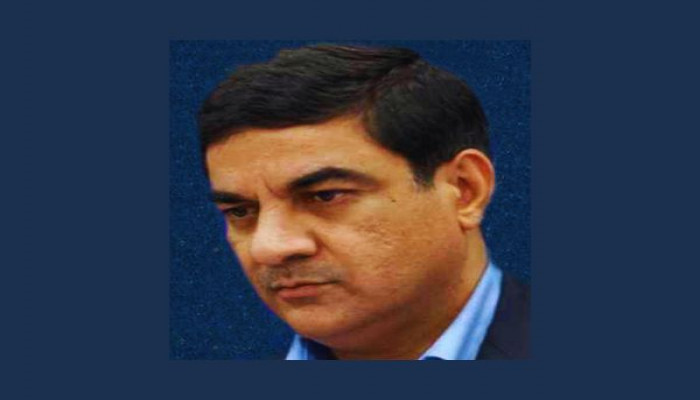U.K. High Court rejects India’s plea to extradite Sanjay Bhandari
- In Reports
- 07:21 PM, Apr 08, 2025
- Myind Staff
The High Court in London has refused the Indian government permission to challenge the discharge of businessman Sanjay Bhandari in the United Kingdom’s Supreme Court. The decision, delivered by Lord Justice Timothy Holroyde during a brief pronouncement hearing at the Royal Courts of Justice on Tuesday, effectively blocks India’s latest attempt to extradite Bhandari, who is wanted in Delhi on allegations of money laundering and tax evasion.
High Court Denies Leave to Appeal
The court ruled against the Indian government's application, which sought certification of two points of law as matters of general public importance. These points were prerequisites for being granted leave to appeal to the U.K. Supreme Court. The application followed a judgment by the same court on February 28, 2025, where Justices Holroyde and Karen Steyn upheld Bhandari’s appeal against extradition, citing human rights concerns.
“The court received an application from the government of India seeking certification of points of law of general importance and grant leave to appeal to the Supreme Court,” stated Justice Holroyde. “Having considered the written submissions, the court is satisfied that no oral hearing is necessary, and no further submissions required. The two points on which leave to appeal was sought is refused. The reasons being that neither of the points of law of general importance were involved in the court’s decision.”
According to the judgment, the first point related to the legal “standard of proof” applied to the accused, and the second concerned conditions in Delhi’s Tihar Jail, where Bhandari would have been held pending trial. India had argued that any concerns regarding prison conditions could have been resolved with further assurances. However, Justice Holroyde dismissed this, saying, “Neither of these two points merits consideration by the Supreme Court.”
Why India Sought Extradition
Sanjay Bhandari, a 62-year-old defence consultant, was the subject of two extradition requests from India. The first, certified in June 2020, pertained to alleged violations of the Prevention of Money Laundering Act, 2002. The second, certified in June 2021, involved accusations under the Black Money (Undisclosed Foreign Income and Assets) and Imposition of Tax Act, 2015. Authorities in India claim Bhandari was involved in illegally concealing assets and failing to disclose foreign income.
Bhandari, who operated a consultancy firm named Offset India Solutions, advised international defence manufacturers bidding for contracts with the Indian government. He challenged the extradition order issued by the then U.K. Home Secretary Suella Braverman, seeking relief from the Westminster Magistrates’ Court’s November 2022 decision approving extradition.
The businessman was represented by Janes Solicitors during his appeal to the High Court.
February Judgment Cited Human Rights Concerns
The High Court judgment delivered in February 2025 overturned the extradition order primarily on human rights grounds. The judges accepted Bhandari’s claims under Article 3 of the European Convention on Human Rights (ECHR), which protects individuals from torture and inhumane or degrading treatment. Their conclusion was based on extensive evidence and fresh material submitted regarding the conditions at Tihar Jail.
“In our judgment, having regard to all the evidence and information provided on this ground, including the fresh evidence, we conclude that in Tihar prison, the appellant (Bhandari) would be at real risk of extortion, accompanied by threatened or actual violence, from other prisoners and/or prison officials,” the court held.
Additionally, the court accepted a secondary claim under Article 6 of the ECHR, which guarantees the right to a fair trial. This is related to concerns over the burden and standard of proof that would apply to Bhandari in the Indian legal system.
While the High Court dismissed four other grounds raised in the appeal, these two formed the basis for discharging the extradition order. The February judgment led to the formal "discharge" of Bhandari from extradition proceedings initiated by the U.K. government.
What Comes Next?
With the High Court's refusal to grant certification for an appeal, the Indian government’s legal path has narrowed significantly. The current decision marks the conclusion of the first step in a two-stage process for bringing a case to the Supreme Court. It remains unclear whether Indian authorities will pursue the second stage — a direct application to the U.K. Supreme Court for permission to appeal. Officials involved in the case have not yet confirmed their next steps.
This latest development represents a major setback in India’s years-long effort to bring Bhandari back to face criminal charges. The case continues to be a high-profile instance of the complexities involved in international extradition, particularly when questions of human rights and legal standards are at play.







Comments